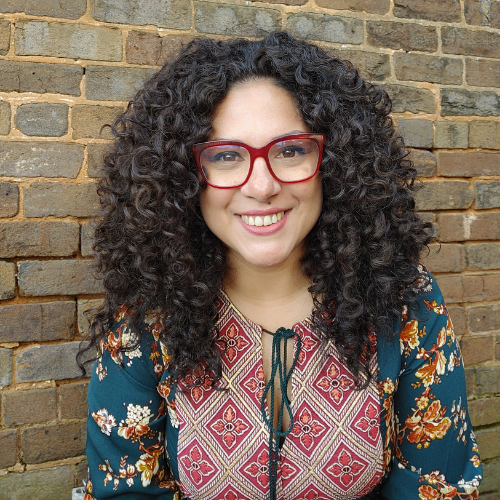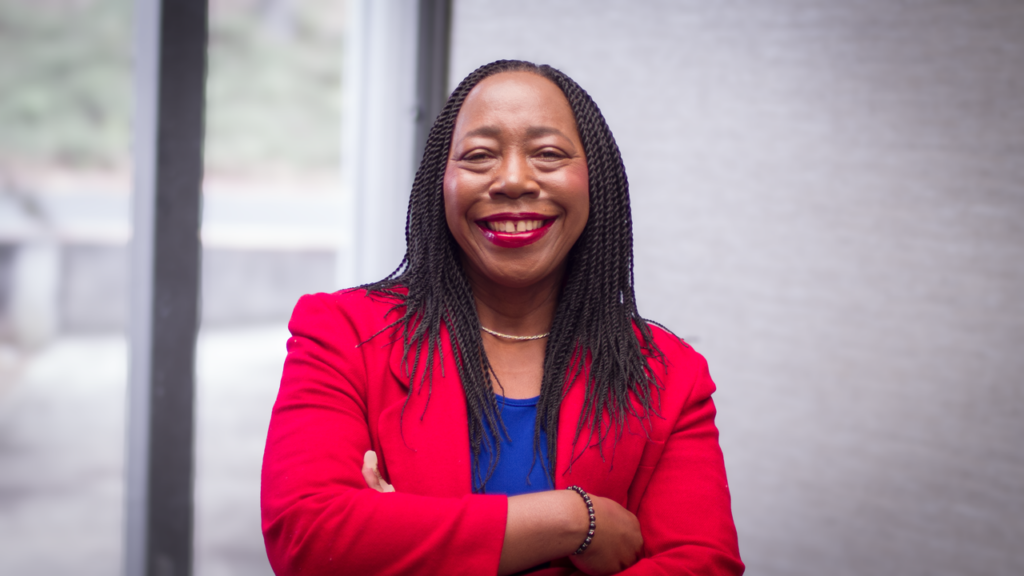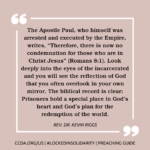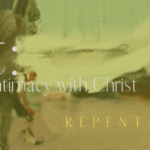This year, we invited two members of CCDA’s Immigration Network to reflect on what Easter means to them, one an immigrant and the other a refugee. We are grateful for their stories and the opportunity to learn from them as we remember Christ’s resurrection.
By Raquel Leal-Alvarez
Immigration has marked a before and after in my spiritual convictions and the way I relate to Jesus. I grew up celebrating Easter with my faith community. My father was a pastor, and I vividly remember the early morning resurrection services he organized with such dedication, with candles, a beautiful time of quiet worship in the darkness and silence of dawn, and a hopeful message: He will return.
That message remains alive in my heart. After conquering death, He has risen: He will return. His sacrifice redeemed us: He will return.
The story of Easter is the story of God tearing the veil that separated us from Him to restore communion with humanity. He, embodied in His Son Jesus, crossed the greatest of all borders, the one that separates humanity from eternal life. Jesus left His throne, became flesh, and endured the experience of displacement, rejection, and sacrifice. I can relate to Him so deeply.
His resurrection is the victory over death and exclusion. Regardless of nationality or immigration status, we are all invited to a new life of hope and restoration.
As an immigrant, Easter now resonates with me in an even deeper way. Jesus Himself was a refugee when Joseph and Mary fled to Egypt to save Him from Herod’s violence. Many of us have left our countries due to the violence that prevails in them, finding a new home in distant lands. How beautiful it is to know that Jesus’ life was also marked by this reality. Through His life and ministry, Jesus taught us to welcome the marginalized, the foreigner, and the rejected because He, too, was forced to leave His parents’ city. He was rejected and misunderstood, just as I have been. On the cross, Jesus bore abandonment and uprootedness, just as I have, but through His resurrection, He offered us an eternal home in His kingdom, a home far beyond the land where we were born.
I want to embody this message. Easter is the celebration of the hope of a life with Jesus in our heavenly home, but it is also a challenge to be bridge-builders, to break down barriers of discrimination, and to see in every immigrant, refugee, and displaced person the image of the risen Christ in this world today, not just when we enter eternal life.
I cannot hide my Latin accent, nor can I hide my heavenly accent, the one that sets me apart through the way I live, a constant reminder of my citizenship in Heaven, where there are no borders, and where a place has been prepared for all who seek security, dignity, and belonging for eternity.
He will return.
By Drocella Mugorewera
I lift up my eyes to the mountains—
where does my help come from?
My help comes from the Lord,
the Maker of heaven and earth. (Psalm 121:1-2, NIV)
This is the word I received on my refugee journey in 2008. Currently, many people in the world feel like their help can only come from the Risen God. Fear and division around welcoming and serving refugees and immigrants are knocking on institutions and organizations. With the help of God, our resilience and solidarity will win.
Easter is a season of resurrection, redemption, and restoration. For refugees and immigrants, it is also a time of deep reflection on the journey we have taken—physically, emotionally, and spiritually. We know what it means to leave behind all that is familiar, stepping into the unknown with nothing but faith to carry us forward. In many ways, our journey mirrors the path of suffering and the hope of new beginnings in the Easter story.
When I fled my home country, Rwanda, I carried with me the wounds of oppression and rejection. Like Jesus on the road to Calvary, I felt abandoned. Suffering was not the concluding chapter of my story, though. After two years, we were reunited as a family.
I pray that the family reunification program be restored. Like Simon of Cyrene helped Jesus to carry the cross, welcoming communities, predominantly faith-based or faith-inspired organizations, help refugees to carry their crosses during their integration, and we are grateful for their efforts,
In the book Leaders With a Heart: Global Entrepreneurs Creating Massive Impact, I highlight the role of faith-based organizations in refugee resettlement. I recommend them to leverage the trust people have in them for greater change and sustainable transformation. Refugees and immigrants should unify us and not divide us. In Christ, we are all citizens of heaven.
Reflection
How can you be a bearer of Easter hope and light to refugees and immigrants around you?
Let us Pray
Heavenly Father, I pray for wisdom, courage, compassion, and creativity for all community development leaders during the refugee crisis in our country. God, I pray for humility for the world leaders. May they lead according to your will. God, make a way where we do not see a way. Get fear out of our way and provide resources for those we serve. God, strengthen our faith and trust in your almighty power.
May your Word and our prayers be our companion armors on the journey to serve the most vulnerable. May your Holy Spirit strengthen unity in our congregations. God, give peace to families in need of your comfort and mercy.
In Your mighty name, I pray. Amen.
About Raquel Leal-Alvarez

Raquel came to East Tennessee with her family from Venezuela in 2017. She obtained her law degree in her home country in 1999 and became a Human Rights Activist in 2015. Her dad was a pastor, teacher, and writer, and worked in politics in their home country, Venezuela; her mom was an attorney and community leader as well, which is why she loves to be involved in her community, advocating for others.
Raquel has been an interpreter for Lenoir City Schools and other organizations since she came to the U.S., helping Spanish speakers to navigate the system and giving them the resources to flourish. She is currently a Family Advocate with The Restoration House of East Tennessee, where she walks alongside low-income single parents and their families, helping them break harmful cycles and regain hope and future. She is also a Support Specialist with Administer Justice, a non-profit that offers affordable legal services to people in their communities.
Raquel Leal is the founder and promoter of Latinas Time, a group which seeks to empower Latina women in East Tennessee, encouraging them to become leaders, entrepreneurs, and to better involve themselves in community activities. She is also a writer and speaker; from her experience, her faith in God, and her journey of restoration, she encourages other women to move forward in the purpose for which they were created.
Raquel believes anyone can be a LEADER wherever they are planted, leading their own lives, families, and the community from different platforms. She wants to work with people who are making a difference, and the new generations by making them understand their worth and how much they have to offer to their communities.
About Drocella Mugorewera

A testament to enduring courage and resilience, Drocella Mugorewera is a four-time bestselling author. Drocella won a scholarship to the National University in Kyiv, Ukraine. Returning home, she became a member of the Rwandan Parliament and Government. In 2008, her safety in jeopardy, Drocella fled her country alone, bravely beginning life anew in Tennessee. There the unstoppable leader received acclaim as the executive director of Bridge Refugee Services and a recipient Champion for Change Awards.
Now a Thriving Community Catalyst and International speaker, Drocella helps faith-based organizations and business owners build thriving communities. Drocella enjoys playing with her grandchildren.




